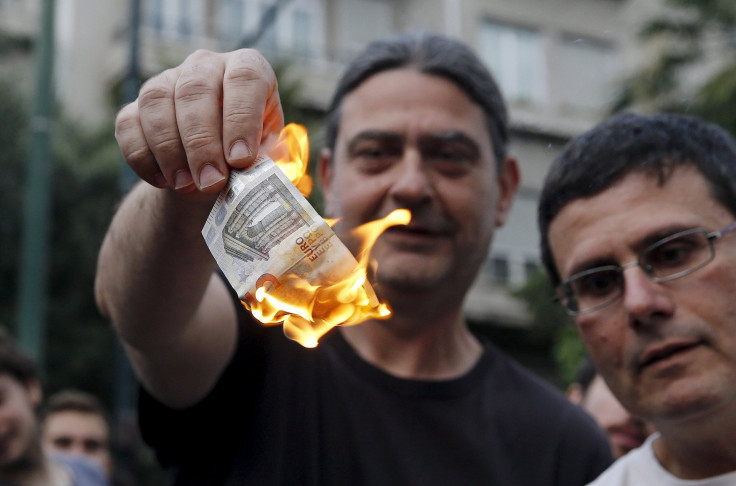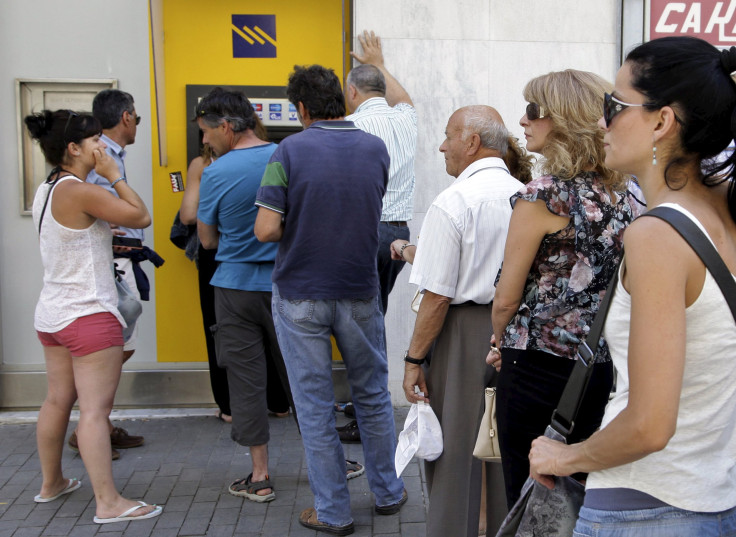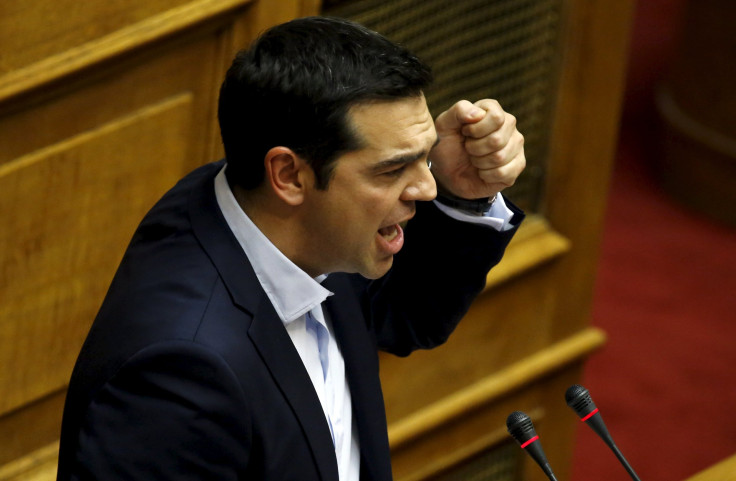Greek Financial Crisis: Greece Orders Banks Shuttered Monday

UPDATE 3:30 p.m. EDT: The financial stability council Sunday recommended Greece keep its banks closed for the next six working days, Reuters reported. Quoting sources with knowledge of the decision, Reuters reported the bank holiday was called after Greeks responded to Prime Minister Alexis Tsipras surprise call for a referendum on bailout terms by pulling money out of banks.
UPDATE 3:05 p.m. EDT: President Obama and German Chancellor Angela Merkel discussed the Greek financial crisis by phone Sunday and agreed it is important to keep Greece in the eurozone and return it to a path to resume reforms and growth, the White House said in a statement.
Original post:
Greece Sunday ordered its banks and the stock exchange not to open Monday to try to avoid a financial collapse. Talks among Athens and the International Monetary Fund and the European Central Bank broke down this weekend.
Bloomberg and Reuters reported the shutdown order came after talks froze on an emergency loan to avert a looming Tuesday default. Anthimos Thomopoulos, CEO of Piraeus Bank SA, revealed the decision following a meeting with the government's financial stability panel.
Piraeus bank CEO says Greek banks will not open Monday - @Reuters
- Breaking News (@BreakingNews) June 28, 2015
The Greek Parliament early Sunday approved plans to hold a referendum next Sunday on whether to accept creditors' terms for fiscal reform. Greece has a 1.6 billion euro ($1.79 billion) payment to the IMF due Tuesday. The government had sought a one-month emergency extension to bridge the gap until the referendum could be held.
The ECB Sunday decided to freeze the level of funding support it gives Greece's banking system rather than increase it to cover withdrawals by wary depositors, who lined up 50 deep outside ATMs in central Greece Sunday, Reuters reported. Despite the drama, a majority of Greeks want to remain with the euro rather than revert to the drachma, which was phased out 16 years ago.

"It is a dark hour for Europe. ... Nevertheless from where we're sitting we have a clear conscience," Greek Finance Minister Yanis Varoufakis told the BBC before the bank announcement was made.
Tsipras was to meet with his cabinet at 1 p.m. EDT.

Creditors want Greece to cut pensions and raise taxes, but Tsipras is against the proposals, arguing it would deepen the country's economic crisis. He urged voters to vote no on the referendum.
Greece's current debt is twice its annual national income, and many leading economists have said the government's argument against further austerity measures has merit. European governments, however, have said they only will continue providing assistance if Greece cuts spending.
German Chancellor Angela Merkel called a meeting in Berlin Monday to discuss the crisis with Germany's major political parties.
The 18 other countries that use the euro blame Greece for breaking off negotiations, Reuters said. European Council President Donald Tusk said he has talked to all the other eurozone countries to try to keep Greece in the currency.
"To those who wonder what's next: 1, Greece should stay in euro; 2, The door is still open for negotiations on latest EU Commission proposals," EU Economics Commissioner Pierre Moscovici said.
French Prime Minister Manuel Valls Sunday said he is determined to keep Greece in the eurozone. "We must find a solution," he told a joint interview with Europe 1, Le Monde and iTELE.
© Copyright IBTimes 2025. All rights reserved.






















